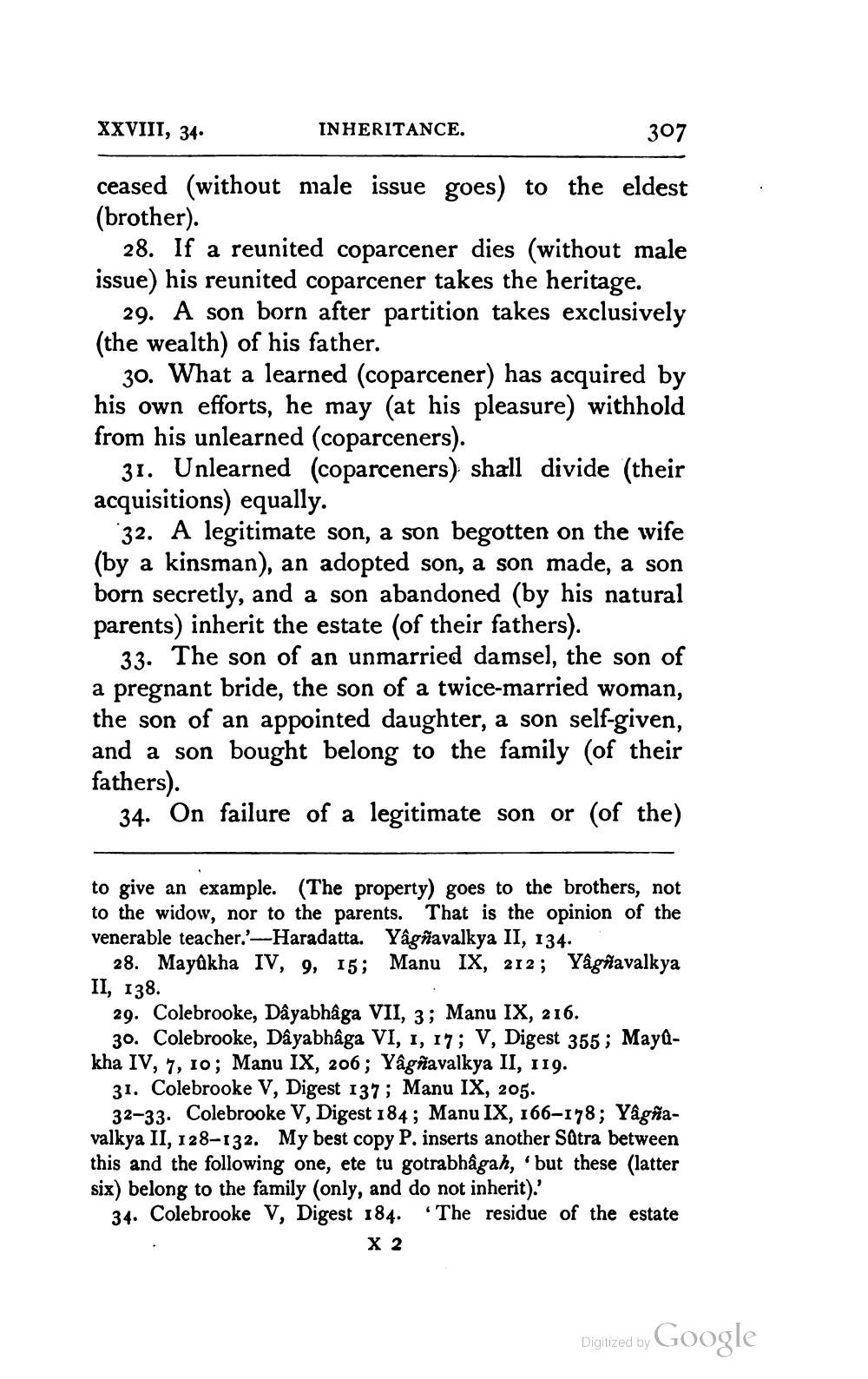________________
XXVIII, 34.
INHERITANCE.
307
ceased (without male issue goes) to the eldest (brother).
28. If a reunited coparcener dies (without male issue) his reunited coparcener takes the heritage.
29. A son born after partition takes exclusively (the wealth) of his father.
30. What a learned (coparcener) has acquired by his own efforts, he may (at his pleasure) withhold from his unlearned (coparceners).
31. Unlearned (coparceners) shall divide (their acquisitions) equally.
32. A legitimate son, a son begotten on the wife (by a kinsman), an adopted son, a son made, a son born secretly, and a son abandoned (by his natural parents) inherit the estate (of their fathers).
33. The son of an unmarried damsel, the son of a pregnant bride, the son of a twice-married woman, the son of an appointed daughter, a son self-given, and a son bought belong to the family (of their fathers).
34. On failure of a legitimate son or (of the)
to give an example. (The property) goes to the brothers, not to the widow, nor to the parents. That is the opinion of the venerable teacher.' ---Haradatta. Yâgñavalkya II, 134.
28. Mayûkha IV, 9, 15; Manu IX, 212; Yâgħavalkya II, 138.
29. Colebrooke, Dâyabhaga VII, 3; Manu IX, 216.
30. Colebrooke, Dâyabhaga VI, 1, 17; V, Digest 355 ; Mayakha IV, 7.10; Manu IX, 206; Yâgñavalkya II, 119.
31. Colebrooke V, Digest 137; Manu IX, 205.
32–33. Colebrooke V, Digest 184; Manu IX, 166-178; Yågñavalkya II, 128-132. My best copy P. inserts another Sätra between this and the following one, ete tu gotrabhâgah, 'but these (latter six) belong to the family (only, and do not inherit).' 34. Colebrooke V, Digest 184. “The residue of the estate
X2
Digized by Google




